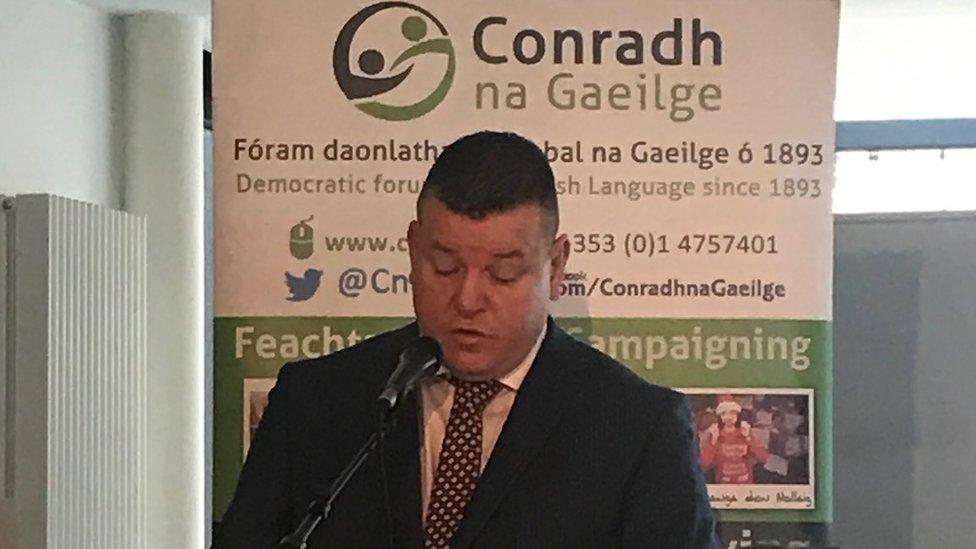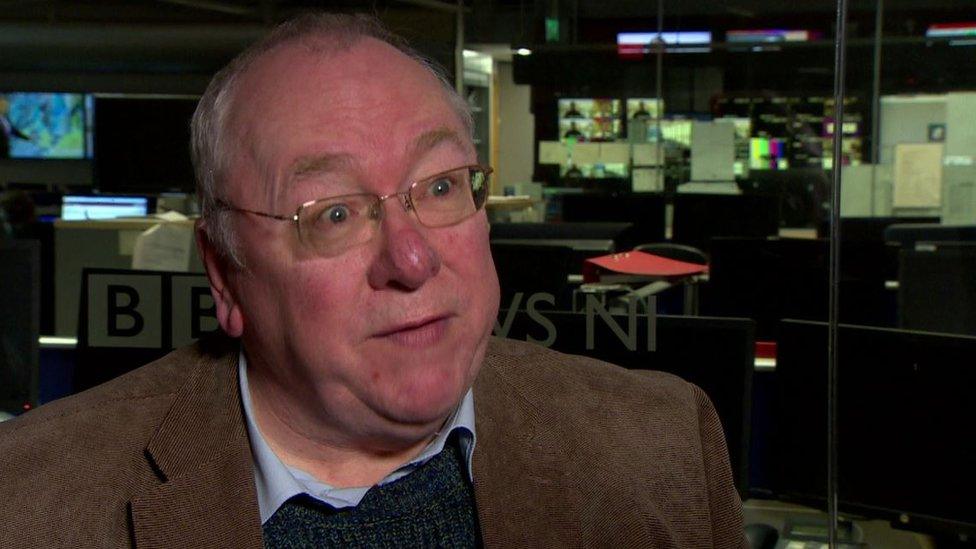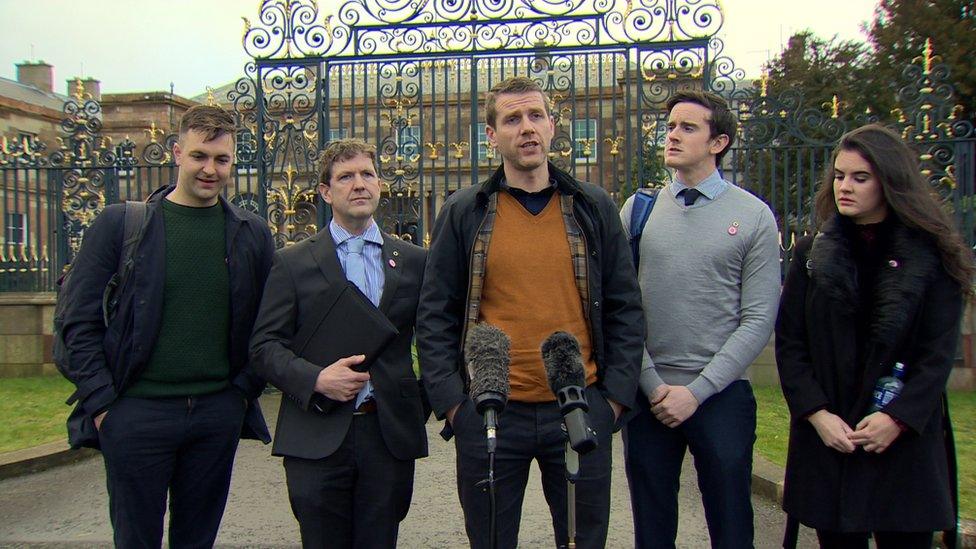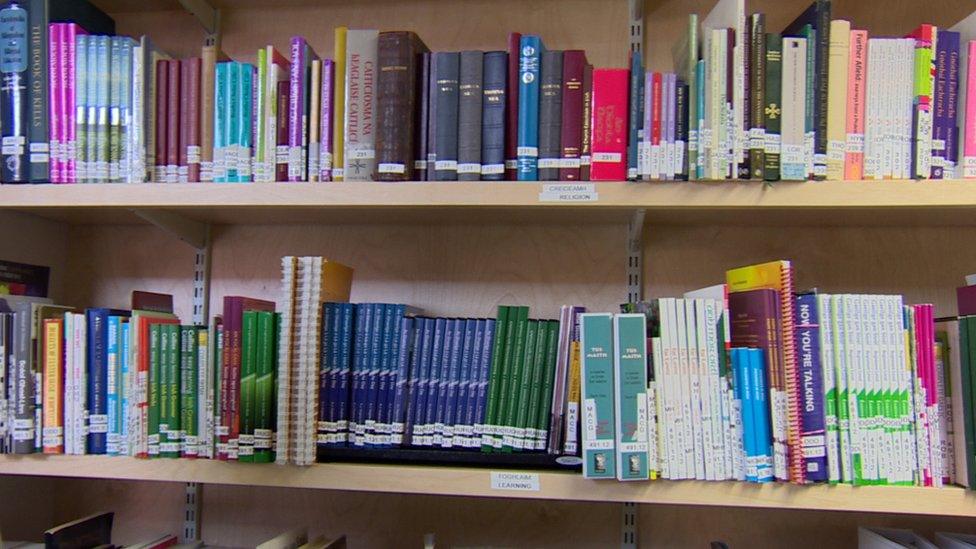Irish speakers fear future 'battles' over language
- Published

Solicitor Niall Murphy was one of the key speakers at the west Belfast meeting
Irish speakers could face "a battle a day" to get services in the language.
That was a view expressed by some of those attending a meeting in west Belfast to debate proposed new language laws.
The meeting in the Cultúrlann centre was organised by the Conradh na Gaeilge (Gaelic League) organisation.
Draft provisions for new Irish language laws were included the New Decade, New Approach (NDNA) agreement.
Daniel Holder from the Committee on the Administration of Justice (CAJ) and solicitor Niall Murphy of Belfast legal firm KRW Law were the key speakers at the event.
They also provided written analysis of the proposed Irish language legislation.
An Irish language bill was part of the NDNA agreement alongside a new Office of Identity and Cultural Expression, and a commissioner for the "Ulster Scots and Ulster British tradition" in Northern Ireland.
The Irish language bill would also lead to the appointment of an Irish language commissioner to ensure public bodies met standards for service in Irish.
However, what the commissioner proposes must be approved by the first and deputy first minister before becoming practice.
In his written analysis, Mr Holder said that there was a "risk" the commissioner would be "constrained."
"The weakness in the legislation relates to the potential for political interference," he wrote.
"There is, however, a long track record of political obstruction of Irish language measures by the DUP in particular and the provision will test whether there is a 'new approach' in this new decade."
As a result, a number of attendees at the meeting expressed frustration, and said that Irish language speakers could face "a battle a day" to get public services in Irish or things like bilingual signs on main roads.
Mr Murphy said that "only time will tell" if that was the case.
"I think the phrase a battle a day might have been in response to what may lie in store in terms of resistance to legislative goodwill," he told BBC News NI.
'Statutory protection'
In his written analysis of the draft bill, Mr Murphy said that it was "not a free standing Irish language act, official status is official status only in so far as the commissioner interprets it to be so".
"There is zero mention in the draft bill about public visibility of an Ghaeilge, with no commitments whatsoever on public signage."
However, Mr Murphy also wrote that the Irish language was in a healthier position now than it had been before.
"For the first time in any of our lives, there is statutory recognition of the Irish language on this part of the island, there will be statutory protection through the office of an Irish language commissioner," he wrote.
However, Mr Murphy also said the draft bill was just the start of the process.
"We have not arrived at the destination at the end of the journey, we have merely attained the tools to build the bus... for the rest of our journey," he said.
- Published7 January 2020

- Published5 January 2020

- Published16 September 2019
